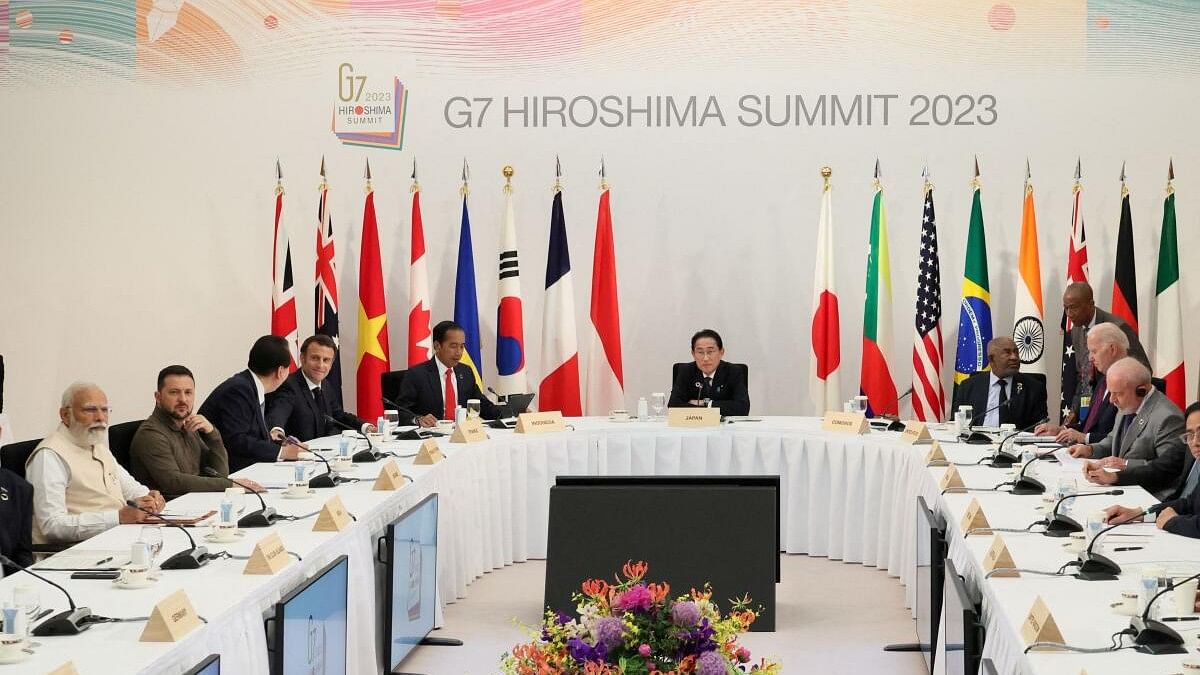
General view shows the G7, Partner Countries and Ukraine meeting as a part of the G7 leaders' summit in Hiroshima, western Japan May 21, 2023.
Credit: Reuters Photo
By Jorge Valero and Alberto Nardelli
The Group of Seven and the European Union are discussing a plan to use more than $250 billion in frozen Russian central bank assets as collateral to help fund Ukraine’s reconstruction, according to people familiar with the matter.
Under the proposal, Ukraine’s allies could sell debt to contribute to the war-torn country’s rebuilding, using the frozen assets as collateral. Proponents believe that any settlement to the conflict under international law would find Russia liable to pay for the damage it has caused its neighbor. Should Russia refuse, claims could be made on the frozen assets, the people said.
Discussions are currently taking place at a technical level, meaning a political decision has not yet been taken, said the people, who spoke on condition of anonymity. One of the people said some countries want to move faster than others.
The G-7 has pledged to make Russia pay to rebuild Ukraine and to keep sanctioned assets frozen until it does. Several G-7 nations, including France and Germany, have so far resisted the option of confiscating the frozen assets outright because of legal concerns and the potential consequences on the stability of the euro.
The plan could allow for the creation of a special purpose vehicle that would issues zero-coupon bonds backed by callable collateral, one of the people said. A hierarchy would be established on the collateral that would use the assets held by Euroclear as well as banks, the person said.
The option to use the assets as collateral in the meantime, which was first reported by the Financial Times, is seen as an alternative to that route, said the people. Russia has vowed to legally challenge any attempt to seize assets.
Any move would come on top of EU plans to apply a windfall tax to the profits generated by the frozen central bank assets. Though slowly, that plan is progressing, Bloomberg previously reported. The vast majority of the sanctioned assets are held by the Belgium-based clearing house Euroclear, where they generated €4.4 billion in 2023, according to financial results published last week. Several Russian firms have contested the sanctions and a number of legal proceedings are ongoing, almost exclusively in Russian courts.
The discussions focus on Kyiv’s longer-term needs and are separate from a drive to support Ukraine’s economy in the immediate term. Last week the EU approved a €50 billion multi-annual aid package, while talks in the US over $60 billion in assistance remain stuck in Congress.